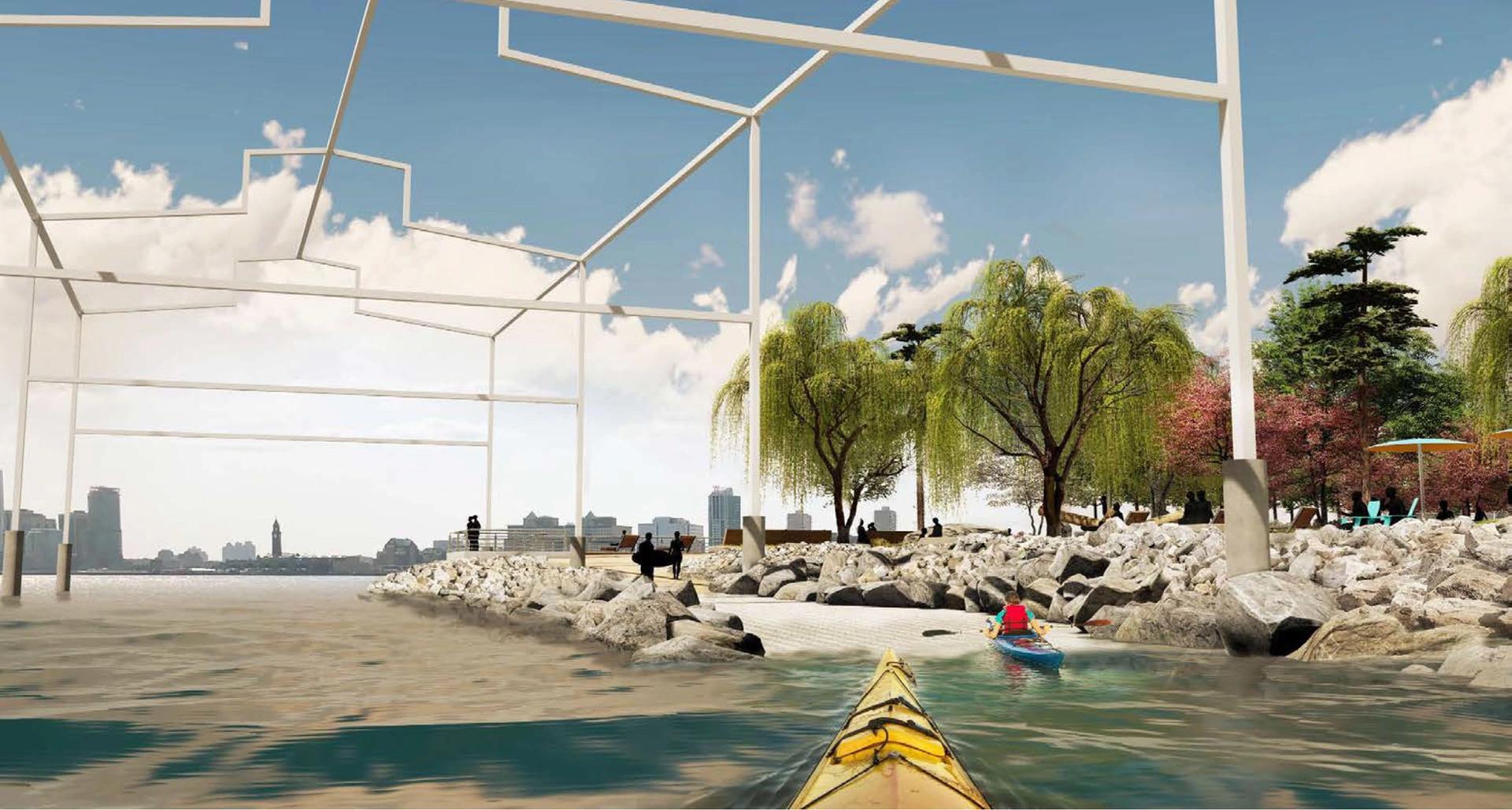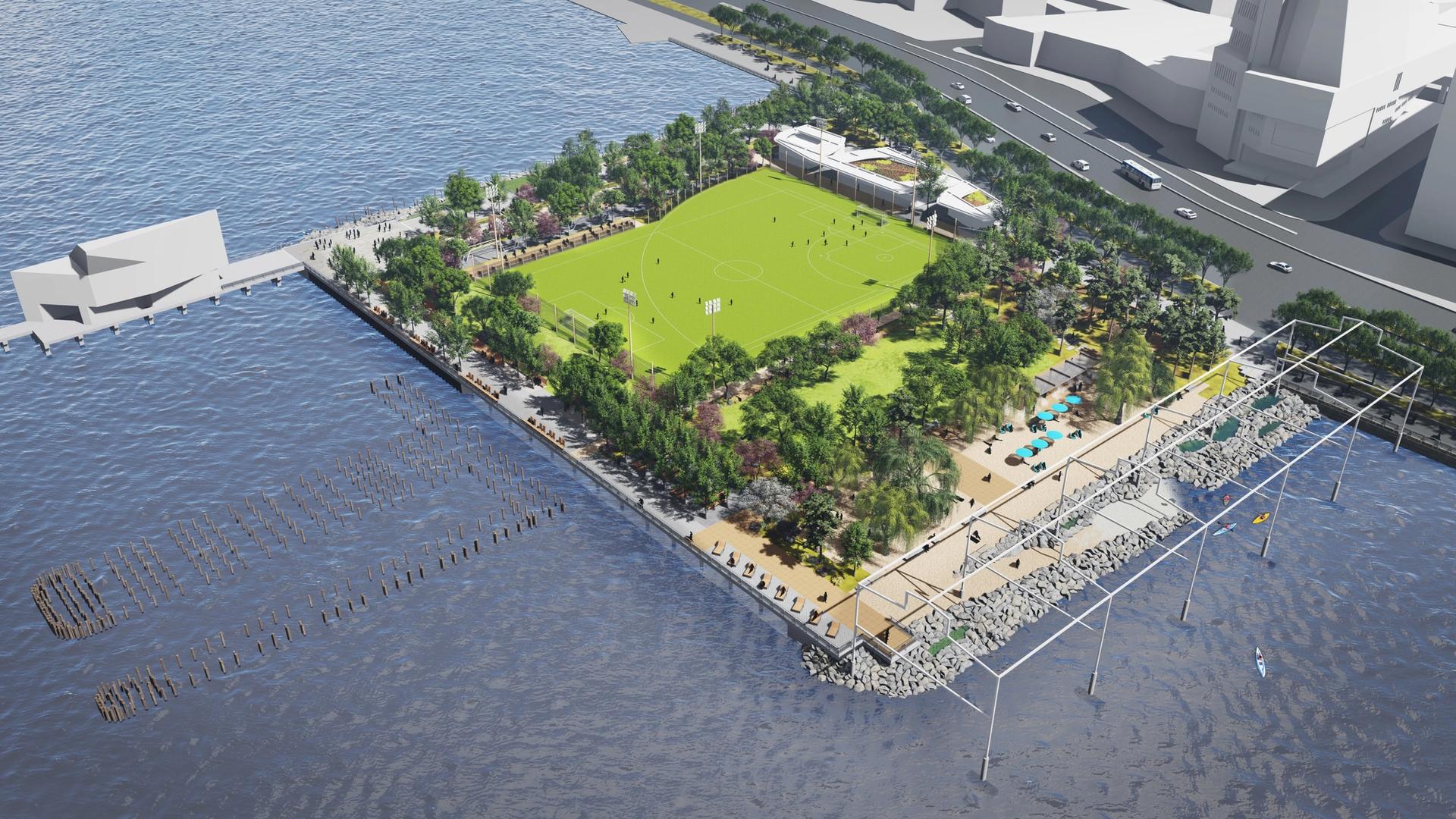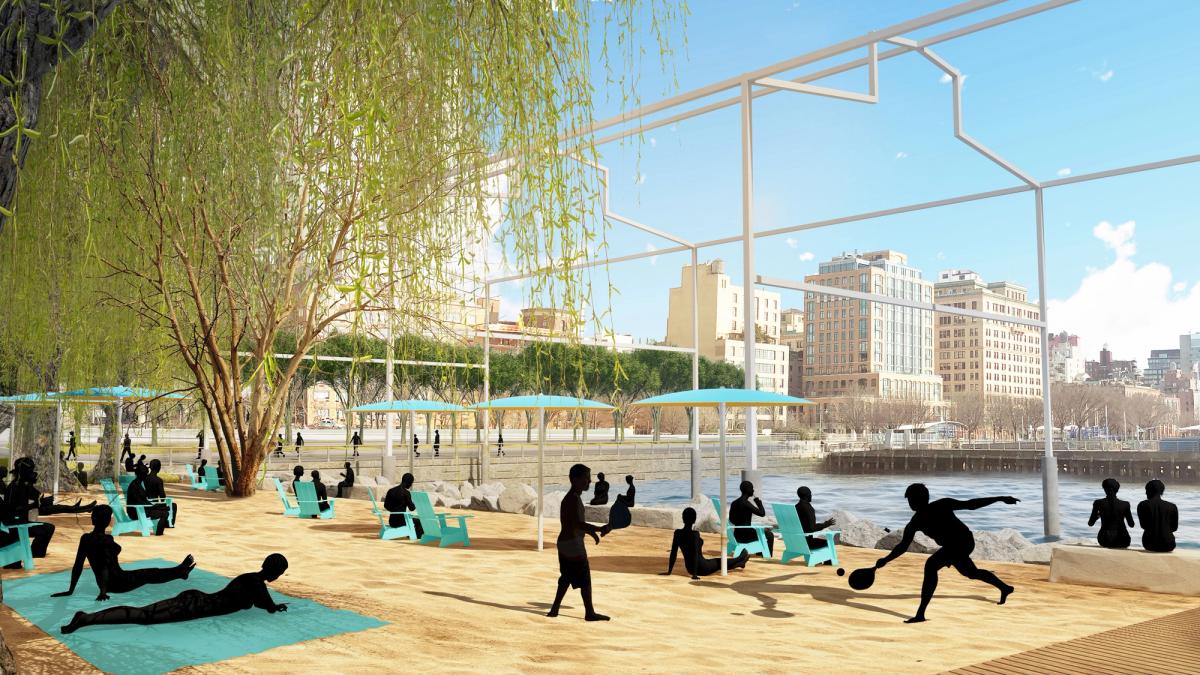Gansevoort Peninsula, the site of David Hammons’s planned public work Day’s End, will also be getting a 5.65-acre public park with a miniature beachfront and river access, according to designs released by the Hudson River Park Trust this week.
The project by the New York landscape architects James Corner Field Operations includes a small sandy beach, tide pools and a kayak launch located directly below Hammons’s skeletal steel structure. The landscape design was inspired by Hammons’s installation and its reference to Matta-Clark’s Days End, the firm notes in their concept proposal. “Matta-Clark cut an existing warehouse in three places to create ‘a temple for sun and light’ and transform an utilitarian structure into an almost spiritual experience,” the document states. “While Hammons’s piece does not replicate the three cuts, we are loosely evoking them. We are cutting into landscape to create connections to water and into the canopy [above nearby public convenience buildings] to shape light and shadow.”

Inspired by Hammons's Days' End and its reference to Gordon Matta-Clark's work, "we are cutting into landscape to create connections to water", the landscape architects say Credit: James Corner Field Operations, courtesy of the Hudson River Park Trust
“The driving inspiration behind this concept is the idea of creating habitat that links back to the estuary and to connect people to the river and local wildlife,” says Madelyn Wils, the president and CEO of the Hudson River Park Trust, in a statement. “We look forward to finalizing the design, working with the community, and getting the project underway.” Construction on the park is due to start in 18 months and be completed in 2022, according to a spokeswoman, after the design is finalised and regulatory approval is secured for the water features. Installation of Hammons’s work is due to start in August, and Wils told the trust’s board that would be completed before work on the beach started.
The rehabilitation of Gansevoort Peninsula, formerly the site of a Department of Sanitation facility, is just one of several regeneration projects totalling almost $1bn along Hudson River Park. Just down the street at Pier 55, work is underway on a “floating” park, designed by Thomas Heatherwick and Mathews Nielsen Landscape Architects. The project is estimated to cost at least $250m and is being largely funded by the media mogul Barry Diller and his wife, the fashion designer Diane von Furstenberg, with additional support from the city.

“The driving inspiration behind this concept is the idea of creating habitat that links back to the estuary and to connect people to the river and local wildlife,” says Madelyn Wils, the president and CEO of the Hudson River Park Trust, in a statement. Credit: James Corner Field Operations, courtesy of the Hudson River Park Trust


